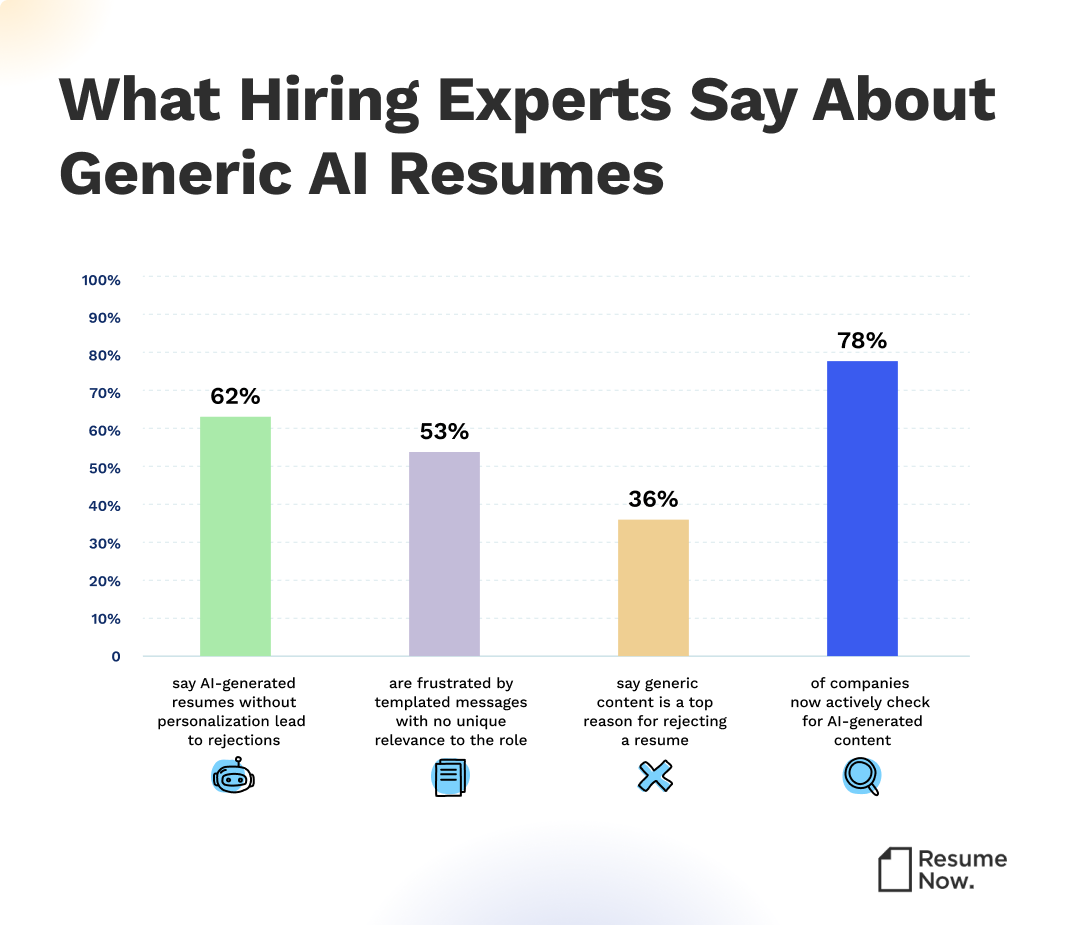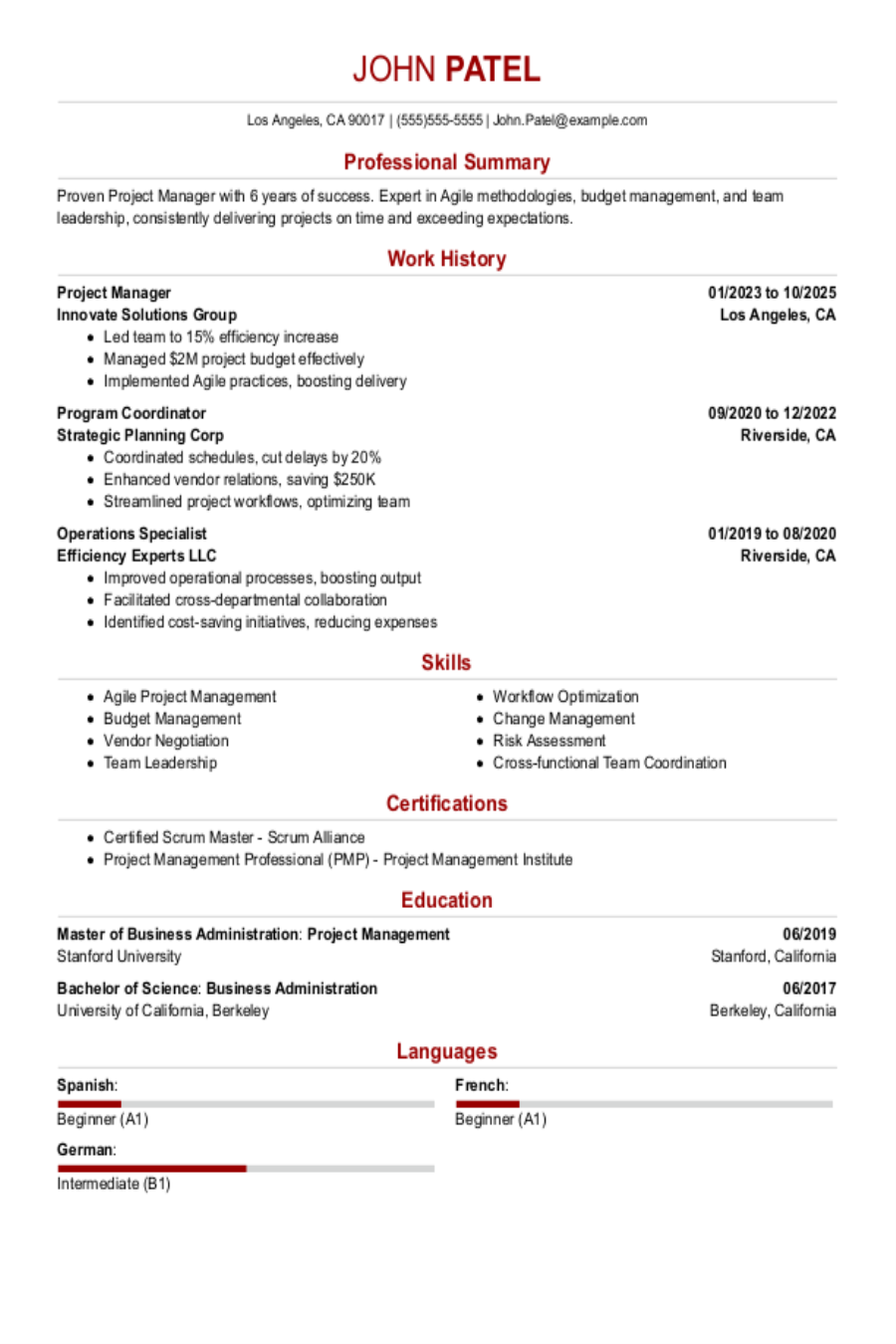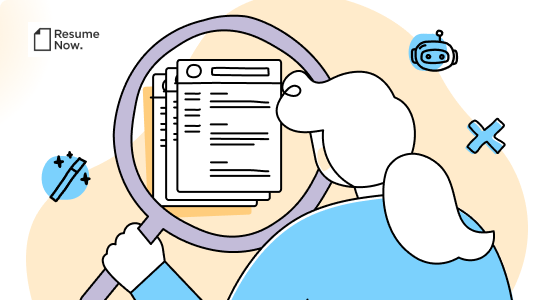Table of contents
Artificial intelligence is changing the way people apply for jobs, but one thing remains the same: employers still value the human touch. According to the 2025 AI and the Applicant Report from Resume Now, a top resume building platform, 78% of hiring managers say personalized details signal genuine interest and fit. Meanwhile, 62% say AI-generated resumes without customization are more likely to be rejected.
Despite the widespread use of AI tools by job seekers, many applicants are submitting generic, impersonal content. For hiring professionals, that lack of authenticity and effort is still a major red flag.
Key Findings
- Personalization still matters most: 78% of hiring managers say they look for personalized details as a sign of genuine interest and fit.
- Lack of customization is a deal-breaker: 62% say resumes generated by AI without personalization often lead to candidate rejection.
- Generic AI messages are a turnoff: 53% are frustrated by AI-generated outreach that feels impersonal or robotic.
- AI is now a go-to tool for applicants: 55% of hiring managers say candidates are using AI most frequently to craft resumes and cover letters.
- AI-generated applications are on the rise: 57% have seen a noticeable uptick in AI-assisted submissions over the past year.
- Spam is spiking with AI usage: 90% report an increase in low-effort or spammy applications—largely driven by AI tools.
- There's a growing call for guardrails: 79% believe companies should implement formal guidelines around AI-assisted job applications.
Employers See a Surge in AI Use—But Not Always the Smart Kind
Employers are witnessing a sharp increase in the use of AI tools among job applicants. While automation can speed up the job search process, many candidates are relying too heavily on AI-generated resumes and AI assistance throughout the job search process without tailoring their materials.
AI use by candidates is rising fast:
- 57% say applicants are using AI significantly more.
- 32% say somewhat more.
- Only 8% saw no change.
- Just 3% say AI use has declined.
But this rapid adoption is causing friction—especially when candidates don't tailor their applications.
What this means: Job seekers are embracing AI tools, but volume does not equal value. Hiring managers are noticing the difference between thoughtful AI-assisted applications and ones that feel rushed or templated. To stand out, applicants should focus on quality over quantity by personalizing their resumes and cover letters for each role. AI can help you start, but it should never replace intentional effort. Using AI to write a cover letter may save time, but employers are still seeking unique and personal content from applicants.
The Risk of AI Without Effort
AI can be a powerful tool in the job search, but hiring managers are quick to dismiss candidates who use it carelessly. Generic, one-size-fits-all applications are raising concerns and leading to higher rejection rates.
Hiring managers are not anti-AI, but they are anti-generic:

- 62% say AI-generated resumes without personalization lead to rejections.
- 53% are frustrated by templated messages with no unique relevance to the role.
- 36% say generic content is a top reason for rejecting a resume.
- 78% of companies now actively check for AI-generated content.
What this means: Employers are not rejecting AI outright, but they are rejecting laziness. Candidates who rely on AI to do all the work without tailoring their materials are being filtered out quickly. Customizing each resume and cover letter to the specific job remains essential. AI should enhance your application, not replace your voice or attention to detail. This also applies to things like thank-you letters after interviews and other communications throughout the job application process. Employers value authentic, effortful documents and communication.
Spam, Inaccuracy, and Oversaturation Are Rising Concerns
As AI tools become more accessible, some candidates are misusing them—leading to a surge in spammy, low-effort applications and inaccurate content. This overreliance is prompting employers to call for clearer rules around AI use in hiring.
- 90% report more spam applications—largely attributed to AI tools.
- 94% have encountered misleading or inaccurate AI-generated content.
- 79% believe companies should create formal guidelines for AI-assisted job applications.
What this means: Poorly used AI is damaging applicant credibility. When employers are overwhelmed by spam or misled by AI-generated errors, they become more skeptical of AI use overall. For job seekers, this means accuracy, honesty, and effort matter more than ever. Double-check AI-generated content, avoid over-automation, and focus on quality to stay ahead in a crowded field. Don't forget—employers use AI too, and applicant tracking systems (ATS) may outright reject spammy, generic, or low-effort resumes.
How Candidates Are Using AI
Employers are seeing AI tools integrated across nearly every stage of the job application process. From writing resumes to prepping for interviews, candidates are turning to automation to gain an edge.
When asked how candidates are using AI, employers cited:
- 55%: Resumes and cover letters
- 53%: Interview preparation
- 53%: Filling out application forms
- 37%: Creating work samples
- 30%: Completing skills assessments
What this means: AI is no longer limited to writing tools—candidates are using it throughout the hiring process. Beyond simply writing your resume, creative and thoughtful AI prompts can help you feel prepared for the interview. While this can save time and improve confidence, it also increases the risk of sounding generic or inauthentic. Job seekers should use AI as a support system, not a substitute, and always add their personal insight, voice, and relevance to the role.
A Balanced Approach: Smart Use of AI Gets Noticed
While employers have concerns about AI misuse, many still appreciate it when used thoughtfully. Candidates who apply AI to enhance rather than replace their application materials are more likely to make a positive impression.
Despite the concerns, many hiring managers still see AI as a net positive if it's used well:
- 77% are more likely to interview a candidate who used AI to improve their resume thoughtfully.
- 65% believe AI-generated content should always be flagged, but 31% say it depends on the role.
What this means: Thoughtful AI use can be a strong advantage. Hiring managers are open to candidates using AI—as long as it's clear the applicant made an effort to personalize and refine the content. Job seekers should use AI to enhance clarity, structure, and polish, but always review, edit, and consider how to tailor a resume before submitting. Smart use of AI signals resourcefulness. Lazy use signals disinterest.
Looking for a change of scenery? Our AI Resume Builder can help you land a new role by creating or updating your resume to meet the standards of the competitive job market.
Methodology
The findings provided were gathered through a survey conducted with 925 American Human Resources Workers on March 28, 2025. Participants were asked about their use of AI in hiring, perceptions of applicant quality, evaluation practices, and views on the ethical implications of AI-generated job applications. Participants responded to various question types, including yes/no questions, open-ended questions, scale-based questions gauging agreement levels, and questions that permitted the selection of multiple options from a list of answers.
For press inquiries, contact Joseph Santaella at joseph@resume-now.com.
About Resume Now
Resume Now is a powerful resource dedicated to helping job-seekers achieve their potential. Resume-Now's AI resume builder is a cutting-edge tool that makes creating a resume fast, easy, and painless. Resume Now has been dedicated to serving job seekers since 2005. Alongside its powerful AI resume builder and stylish, ready-to-use templates, it also features free advice for job seekers at every career stage, guides for every step of the hiring process, and free resources for writing cover letters. Resume-Now is committed to supporting job seekers and workers alike and has conducted numerous surveys related to the experience, trends, and culture of the workplace. These surveys have been featured in Business Insider, CNBC, Fast Company, Yahoo!, Forbes, and more. Keep up with Resume-Now on LinkedIn, Facebook, X, and Pinterest.
Keith is a Certified Professional Resume Writer (CPRW) and trusted media source in the career industry with over a decade of experience helping job seekers stand out.
More resources
![What Should a Resume Look Like in 2025? [+ Example] What Should a Resume Look Like in 2025? [+ Example]](/sapp/uploads/2024/08/what-should-a-resume-look-like-hero.png)
What Should a Resume Look Like in 2025? [+ Example]
A good-looking resume will always use simple fonts and an easy...

25 Common Job Interview Questions and Answers for 2025
Prepare for the interview with examples of some of the most co...

5 of the Best Resume Writing Services You Can Try Today
Discover the best professional resume writing services with th...

Entry-level Resume: Examples, Templates & Tips
As you embark on your career having a standout resume is impo...

Construction Project Manager Resume Examples & Guide
As a construction project manager your resume must capture th...

Engineering Project Manager Resume Examples & Guide
As an engineering project manager your resume must capture th...
